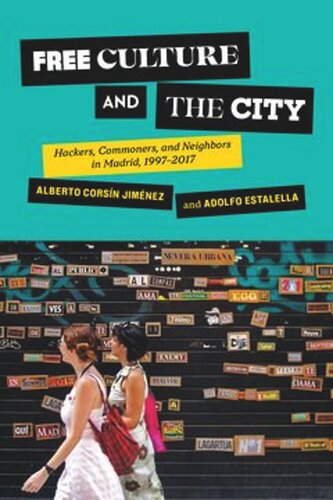

Most ebook files are in PDF format, so you can easily read them using various software such as Foxit Reader or directly on the Google Chrome browser.
Some ebook files are released by publishers in other formats such as .awz, .mobi, .epub, .fb2, etc. You may need to install specific software to read these formats on mobile/PC, such as Calibre.
Please read the tutorial at this link: https://ebookbell.com/faq
We offer FREE conversion to the popular formats you request; however, this may take some time. Therefore, right after payment, please email us, and we will try to provide the service as quickly as possible.
For some exceptional file formats or broken links (if any), please refrain from opening any disputes. Instead, email us first, and we will try to assist within a maximum of 6 hours.
EbookBell Team

4.7
26 reviewsFree Culture and the City examines how and why free software spread beyond the world of hackers and software engineers to become the basis for an urban movement now heralded by scholars as a model for emulation and inspiration.
By the late 1990s digital activists embraced a philosophy of free software and "free culture" to take control over their cities and everyday lives. Free culture, once tethered to the digital realm, was cut loose, and used to reclaim and re-sculpt the city. In Madrid these effects were dramatic and notable. Common sights in the city are abandoned industrial factories turned into autonomous social centers, urban orchards, guerrilla architectural camps, or community hacklabs.
Drawing on two decades of ethnographic and historical work with free culture collectives in Madrid, Free Culture and the City shows how, in its journey from the digital to the urban, the practice of liberating culture required the mobilization of, and alliance between, public art centers, neighborhood associations, squatted social centers, hackers, intellectual property lawyers, street artists, guerrilla architectural collectives, and Occupy assemblies.